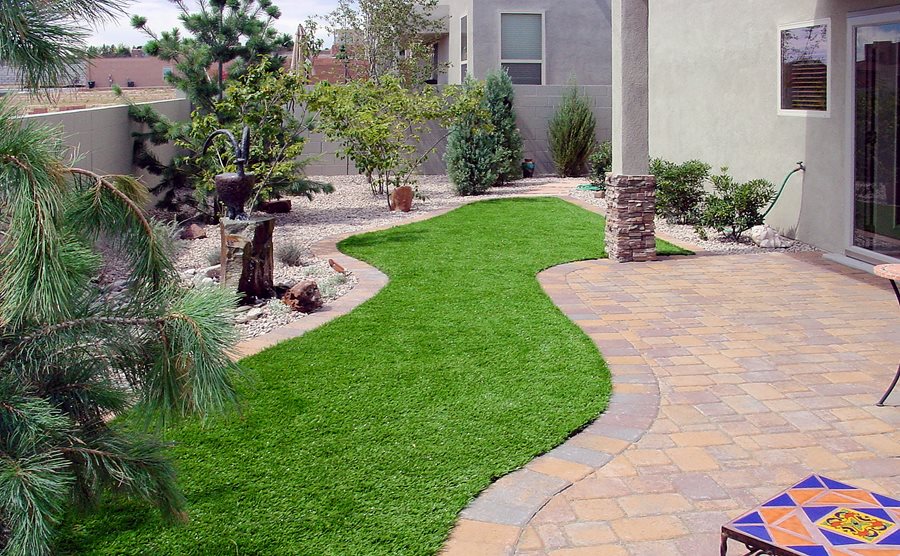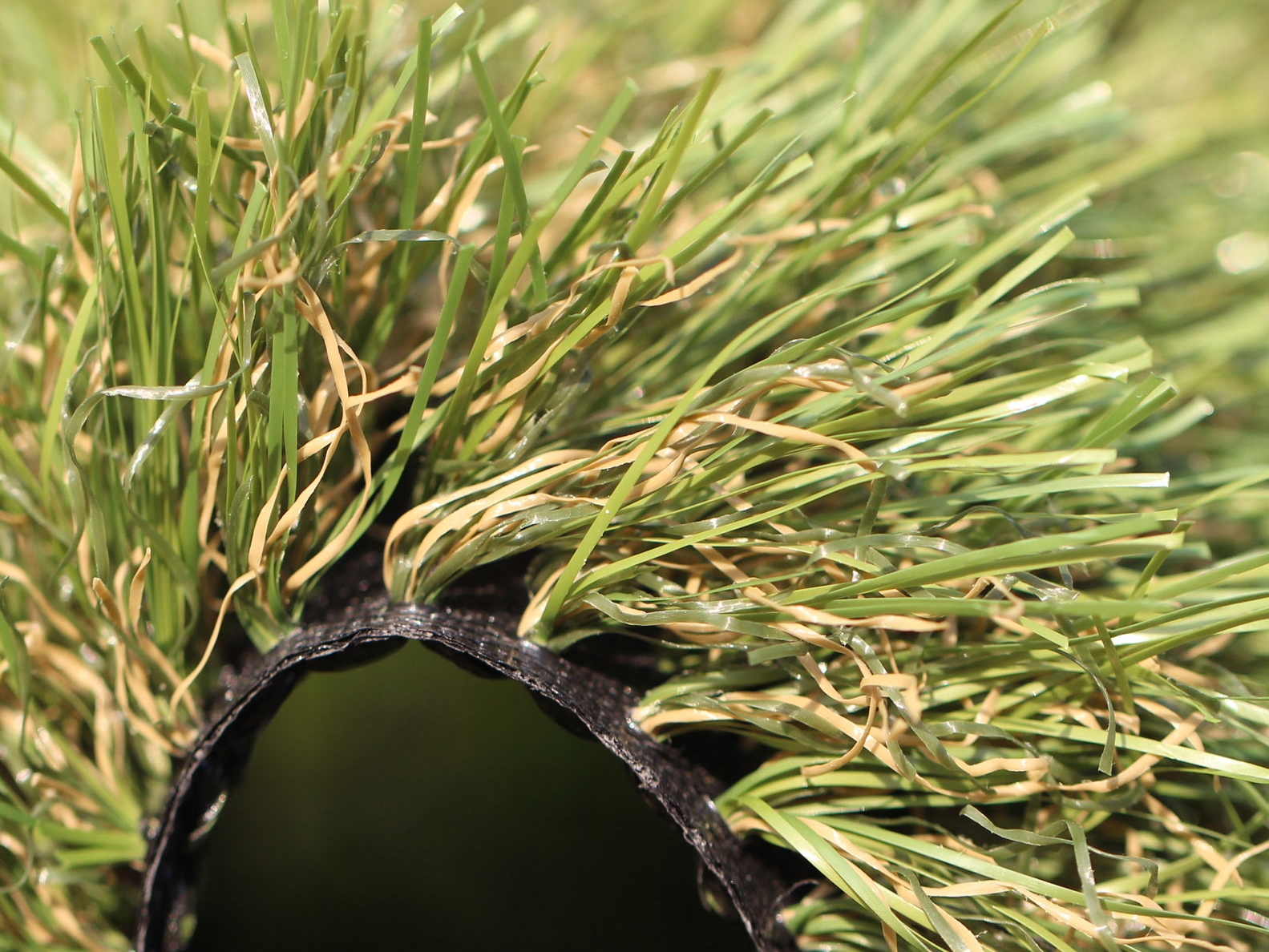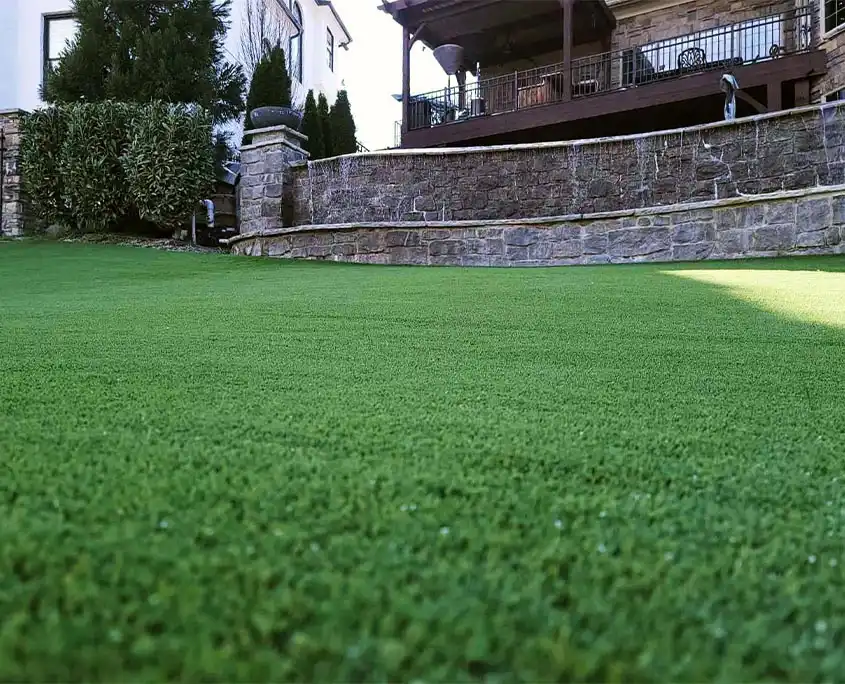Explore the Environmental Benefits of Opting for Synthetic Grass Solutions
The adoption of man-made grass remedies offers an engaging opportunity to address pushing environmental difficulties. By substantially minimizing water use and minimizing the application of hazardous chemicals, these alternatives not only promote lasting landscape design yet additionally safeguard regional environments.
Water Preservation Benefits
One of the most considerable benefits of artificial lawn is its capability to conserve water. In contrast, fabricated lawn does not require watering, dramatically reducing the overall need for water resources.
By eliminating the demand for normal watering, synthetic grass adds to sustainable landscape practices and assists minimize the ecological effect of excessive water intake. The conservation of water extends to the decrease of runoff, which can lead to dirt disintegration and waterway contamination.
In addition, the installment of synthetic grass enables homeowners and municipalities to designate water sources more efficiently, focusing on vital uses such as drinking water and farming. The shift in the direction of fabricated lawn not just promotes responsible water use yet additionally straightens with more comprehensive ecological objectives intended at protecting natural deposits.
As neighborhoods significantly focus on sustainability, the water conservation advantages of synthetic lawn provide a compelling case for its fostering in commercial and domestic landscaping jobs.
Decreased Chemical Use
The change to man-made grass dramatically decreases the dependence on chemical therapies generally made use of in all-natural yard upkeep. Conventional turf monitoring typically involves the application of plant foods, pesticides, and herbicides to advertise growth and control pests. These chemicals can position dangers to human health and wellness, neighborhood wild animals, and the atmosphere, adding to dirt and water contamination.
In contrast, synthetic grass gets rid of the need for these harmful materials. As soon as installed, it calls for marginal upkeep, mostly containing routine cleaning and irregular infill replenishment. This reduction in chemical use not only benefits the immediate setting yet also contributes to wider ecological stability. By minimizing the launch of synthetic substances right into the environment, synthetic grass advertises much healthier soil and water supply.
In addition, the absence of chemical drainage connected with man-made lawn setups aids secure regional waterways from pollution, sustaining marine life and maintaining biodiversity. Phoenix turf companies. As areas increasingly prioritize lasting practices, selecting synthetic grass provides a practical solution that straightens with environmental preservation objectives. Via this change, homeowner can take pleasure in rich eco-friendly rooms without endangering environmental wellness, paving the means for an extra sustainable future
Lower Carbon Impact

In addition, the installation of synthetic grass can result in significant water go to this web-site conservation. Natural grass need significant amounts of water for watering, which not only adds to the carbon impact related to water extraction and treatment but additionally strains neighborhood water sources. On the other hand, man-made grass needs minimal maintenance, calling for no watering, therefore dramatically decreasing water usage and its associated energy expenses.
In addition, the long life of synthetic grass adds to its decreased carbon effect. With a lifespan of as much as 15 years or even more, the need for constant substitutes is decreased, causing much less waste and lower energy consumption in manufacturing and dealing with conventional grass alternatives. Overall, synthetic grass provides a sustainable alternative for ecologically mindful landscaping.
Habitat Conservation
Habitat conservation is a critical consideration in the dispute over landscaping options, especially when comparing synthetic grass to natural grass. Natural yard yards frequently call for considerable upkeep, consisting of making use of plant foods, pesticides, and herbicides, which can detrimentally affect regional ecosystems. These chemicals can leach right into the dirt and rivers, harming native vegetation and fauna and interrupting regional environments.
In contrast, man-made turf offers a chance to lower the eco-friendly footprint of landscaping. By going with artificial grass, homeowners can reduce the interruption of all-natural habitats connected with standard grass care practices. Synthetic grass removes the demand for damaging chemicals, consequently securing neighboring wild animals and preserving the stability of bordering communities. Extra resources In addition, the setup of man-made turf can lead to the conversion of former turf areas into even more biodiverse landscapes, such as pollinator gardens or indigenous plant locations, which can sustain local wild animals.
Ultimately, the transition to synthetic turf not only preserves water and minimizes maintenance initiatives however also fosters an extra harmonious connection in between human tasks and the natural surroundings, promoting habitat preservation at the same time.
Long-Term Sustainability
Lasting sustainability is an important consider assessing the benefits of fabricated grass over conventional yard yards. Among the most substantial advantages of synthetic grass is its sturdiness; it can last up to 15-20 years with minimal upkeep, whereas all-natural turf requires frequent reseeding and substitute. This longevity minimizes the need for continuous resources, such as water, fertilizers, and pesticides, which are vital for maintaining a healthy and balanced grass yard.
Furthermore, synthetic grass adds to a decrease in carbon exhausts connected with lawn care tools. Conventional yards typically call for gas-powered lawn mowers, trimmers, and blowers, all of which contribute to air contamination. Arizona artificial turf. In comparison, artificial lawn eliminates the requirement for such devices, advertising a cleaner setting
Moreover, the manufacturing of synthetic grass significantly uses recycled materials, improving its sustainability account. As manufacturers adopt eco-friendly techniques, the environmental footprint of artificial turf continues to decrease.

Conclusion
The fostering of artificial lawn solutions presents considerable ecological benefits, including considerable read this post here water preservation, decreased dependence on damaging chemicals, and a reduced carbon impact. Furthermore, fabricated lawn help in protecting all-natural environments by reducing land disruption and advertising long-lasting sustainability with the use of durable materials. Collectively, these factors emphasize the potential of fabricated turf to contribute positively to ecological wellness and supply a practical alternative to traditional landscaping techniques in an increasingly resource-conscious globe.
In contrast, man-made lawn does not need watering, considerably lowering the general need for water resources. By decreasing the release of synthetic substances into the ecosystem, man-made grass advertises healthier dirt and water systems.
Additionally, the installation of man-made grass can result in substantial water preservation. In comparison, artificial lawn requires marginal maintenance, needing no watering, thus substantially minimizing water use and its linked power prices.

Comments on “Transform Your Outdoor Space with Arizona Artificial Turf for a Lush Green Look”